14 de fevereiro de 2026
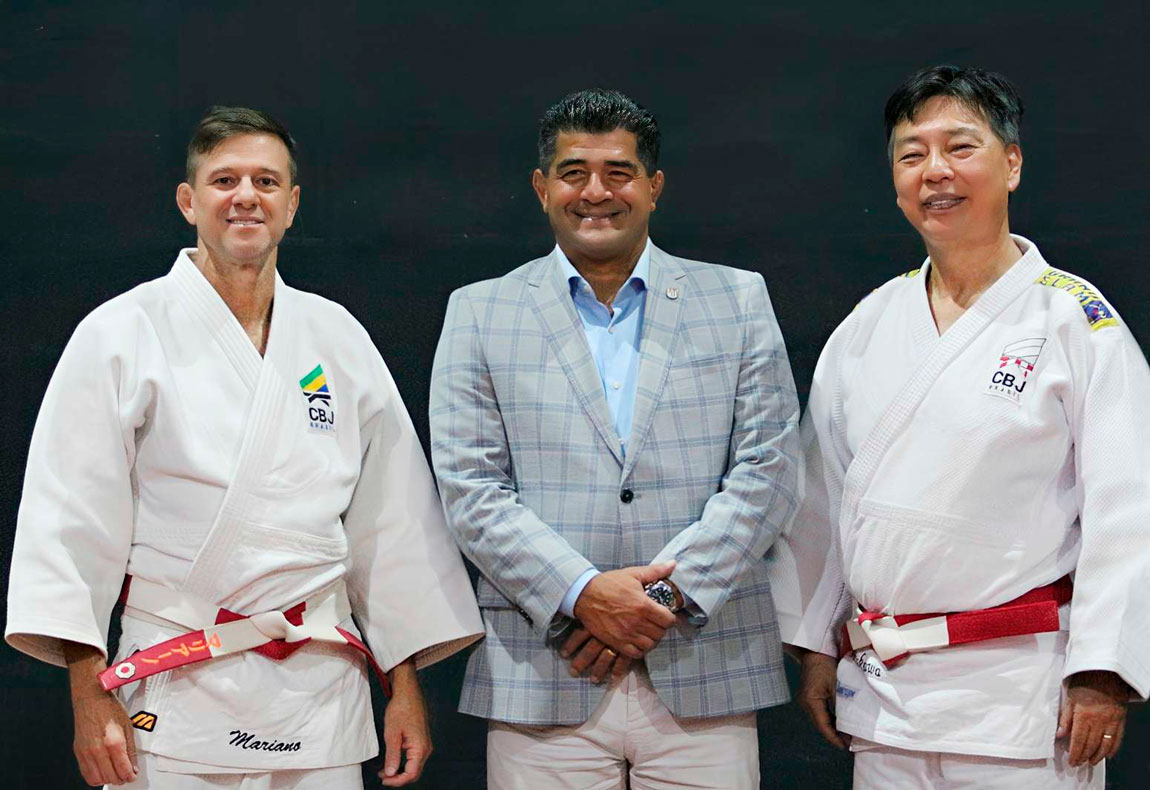
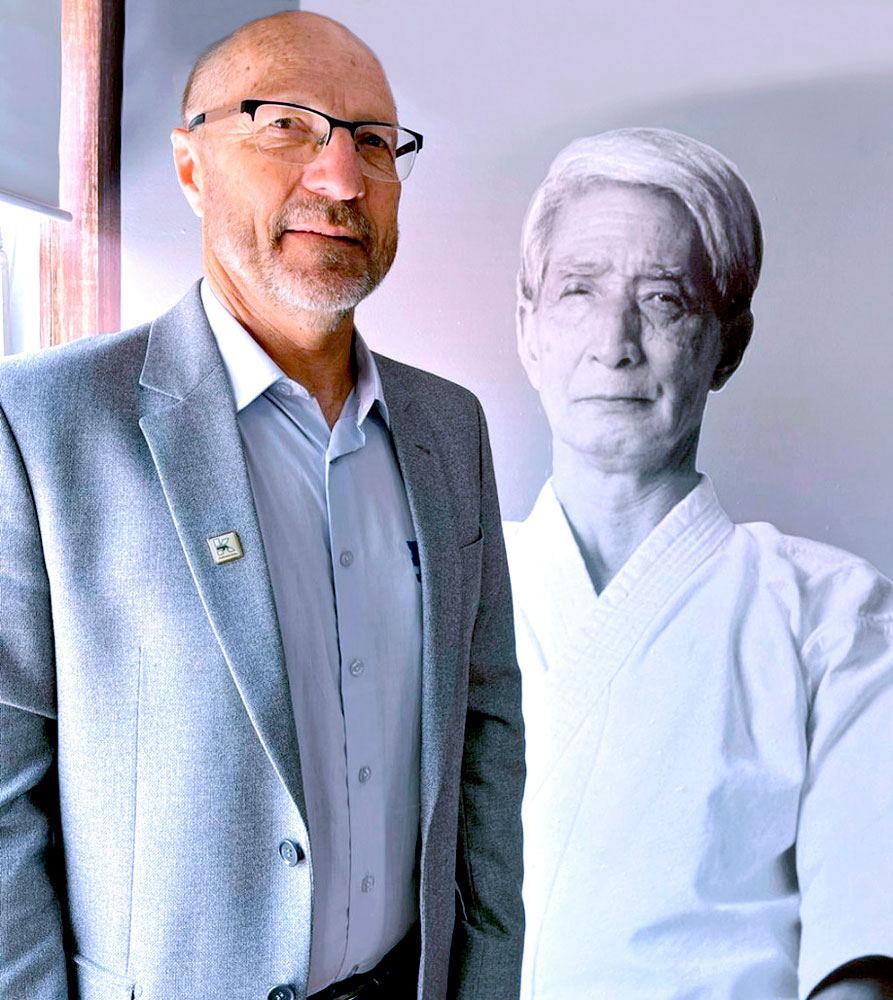 Post doctor in Human Movement Sciences, PhD in Child Studies and Master in Neuroscience, among dozens of titles, Gilberto Gaertner boasts an extensive curriculum not only in the academic area, but also in karate and sports sector © Global Sports
Post doctor in Human Movement Sciences, PhD in Child Studies and Master in Neuroscience, among dozens of titles, Gilberto Gaertner boasts an extensive curriculum not only in the academic area, but also in karate and sports sector © Global Sports
Instead of an empty speech, Gilberto Gaertner, chairman of the International Federation of Traditional Karate (ITKF), used a very direct example when expounding his ideas. “In ITKF management, general secretary Luiz Alberto Küster and I are more or less the same age, but all other directors are at least ten years younger. We are creating a new generation to take over and continue the renewal because this is a very important point.”
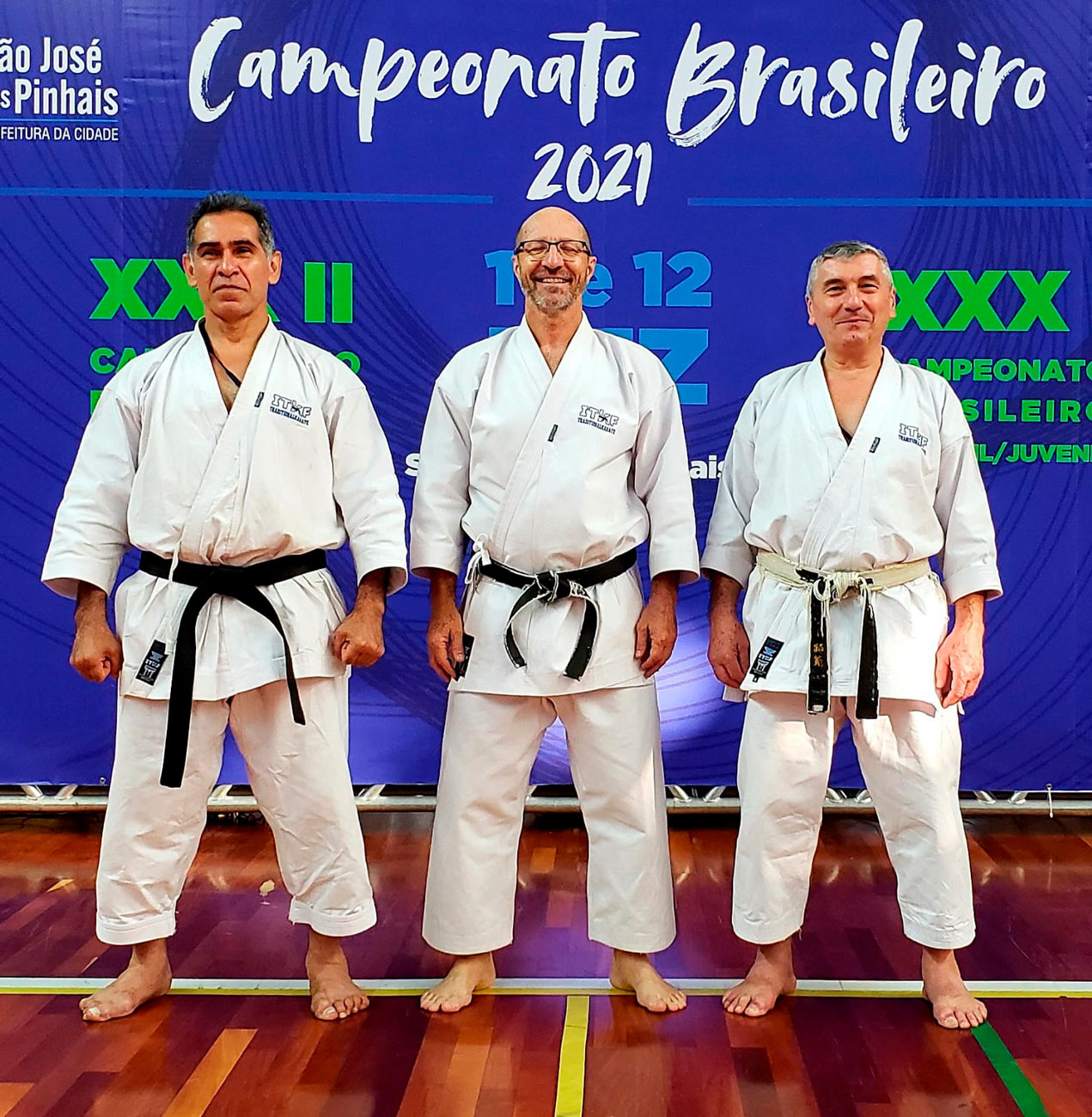
ITKF Technical Committee Members Justo Gómez, Gilberto Gaertner and Eligio Contareli © Archive
For the director, one of the major problems that all karate organizations faced was precisely the lack of building continuity. “When master Masatoshi Nakayama, died, for example, the JKA organization was divided because everyone thought they were in a position to assume leadership. In traditional karate itself there was a lot of fighting and confusion until we managed to reorganize it, but even then there are still three different entities. If we don’t prepare a continuity, the process will become traumatic, it’s like leaving a ticking time bomb to explode and create dissatisfaction and differences in the future.”
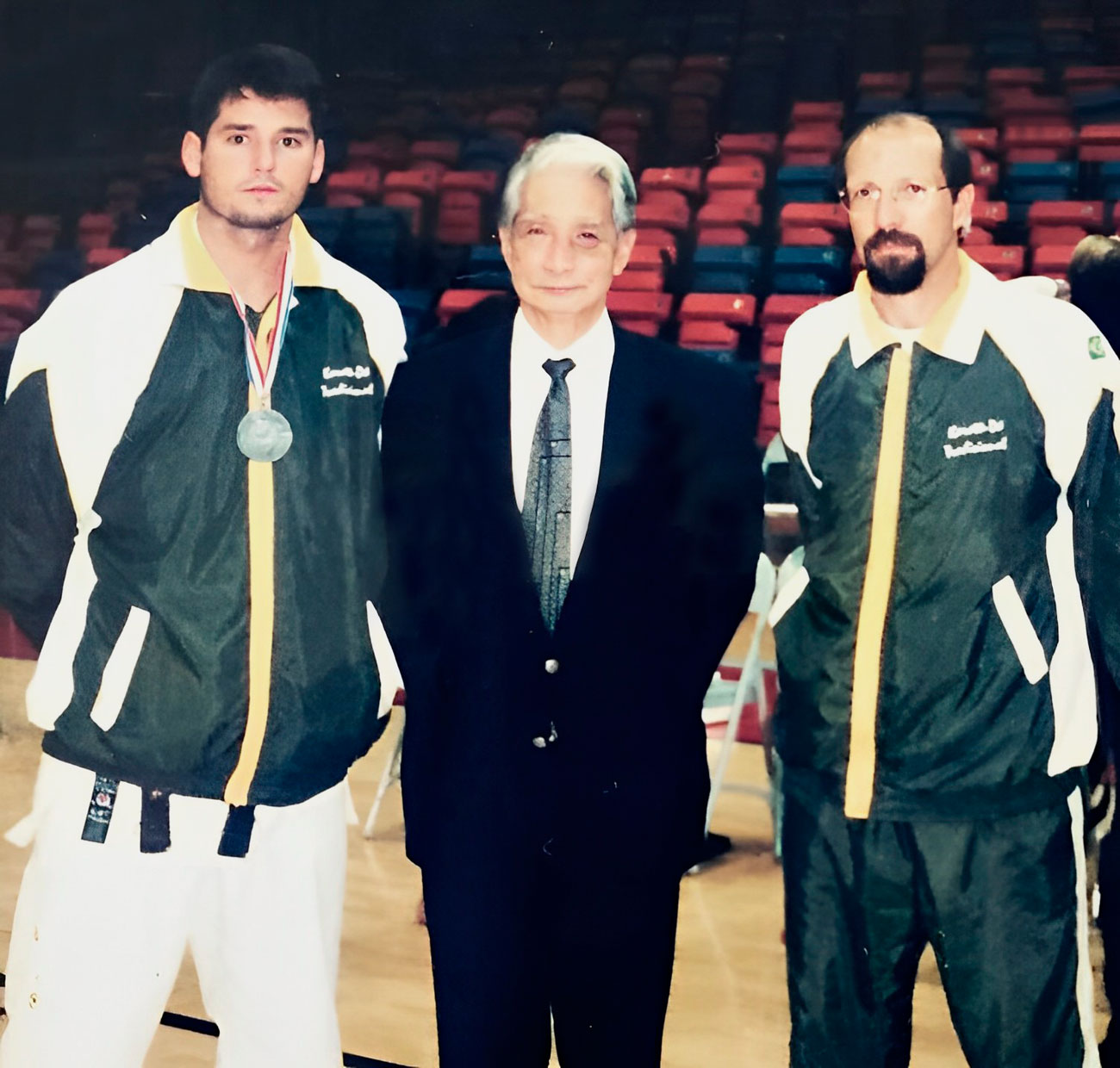
Ricardo Buzzi, Hidetaka Nishiyama and Gilberto Gaertner in Canada in 1999 © Archive
The chairman specifically mentioned the technical committee of the organization, in which only professor Eligio Contareli is the same age as him, while professor Justo Gómez is ten years younger, while assistants to the Technical Committee Ricardo Buzzi and Cornel Mussat are 20 years younger – the three, by the way, are the greatest champions the ITKF has ever had.
At the Brazilian Confederation of Traditional Karate-Dô (CBKT) a similar process takes place: under the command of Sérgio Bastos, from the same generation as Gaertner, younger leaders occupy various boards and are preparing to carry forward the ideals of the modality.
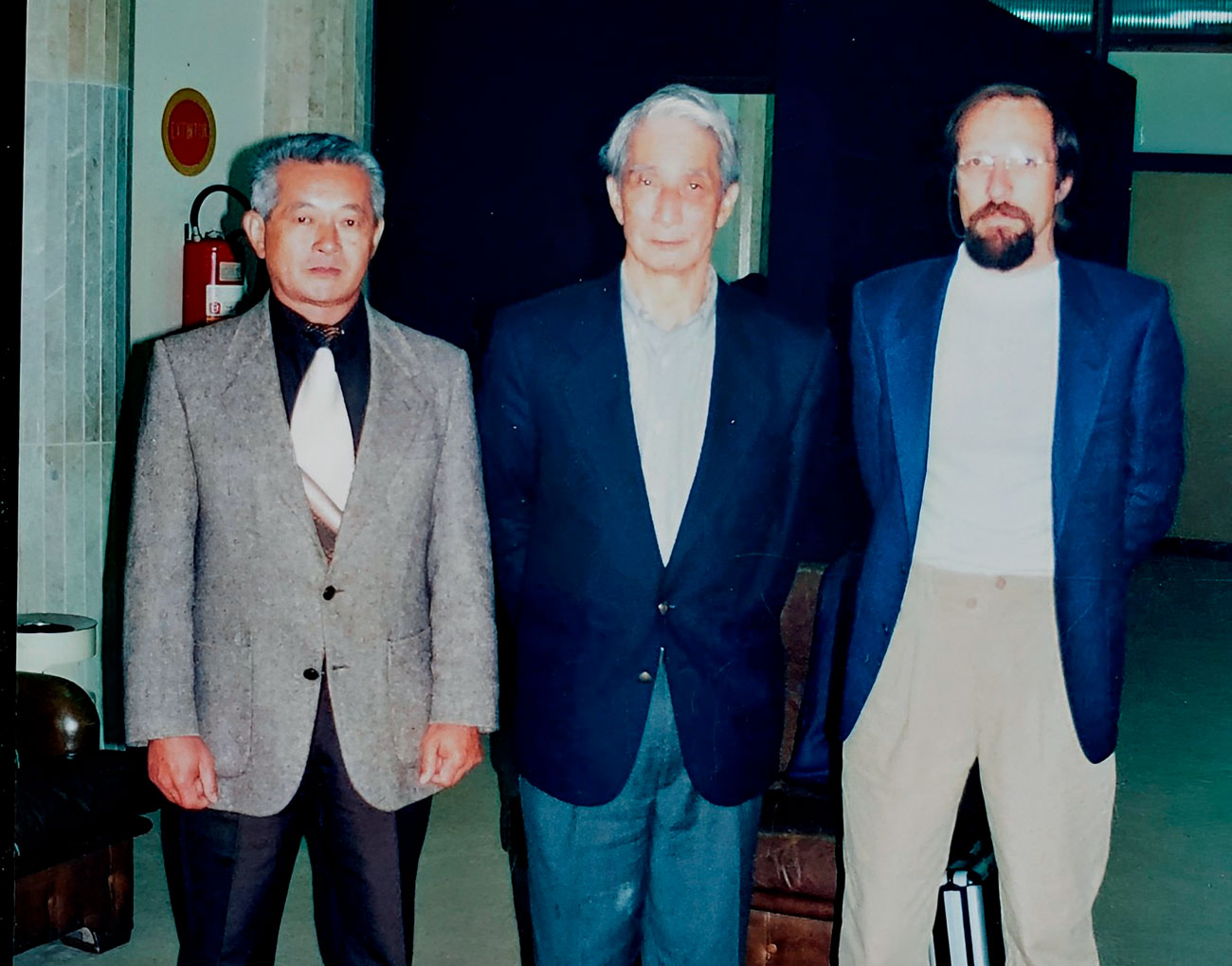
Sensei Júlio Takuo Arai, Hidetaka Nishiyama and Gilberto Gaertner in Brazil in 1994 © Archive
Since the end of last year, representations from nine countries joined ITKF, which today has around 70 affiliated entities (countries). Gaertner considers this expansion natural, but observes that there is no desire for growth. There needs to be an identity of purpose. “We are not a karate focused only on competition; we have a much broader objective, which is the development of people, an educational and training approach. Not that there is no competition, but it is also seen as an educational process, a continuation of daily training, focusing on self-defense and Budo principles.”
There is still great potential for expansion, mainly in Africa and Asia, and even in Central America itself. This year ITKF will promote a master course in Uzbekistan, which should attract many practitioners from neighboring countries not yet represented. Another will be held in Egypt, where traditional karate is very well structured and brings together a large number of athletes.
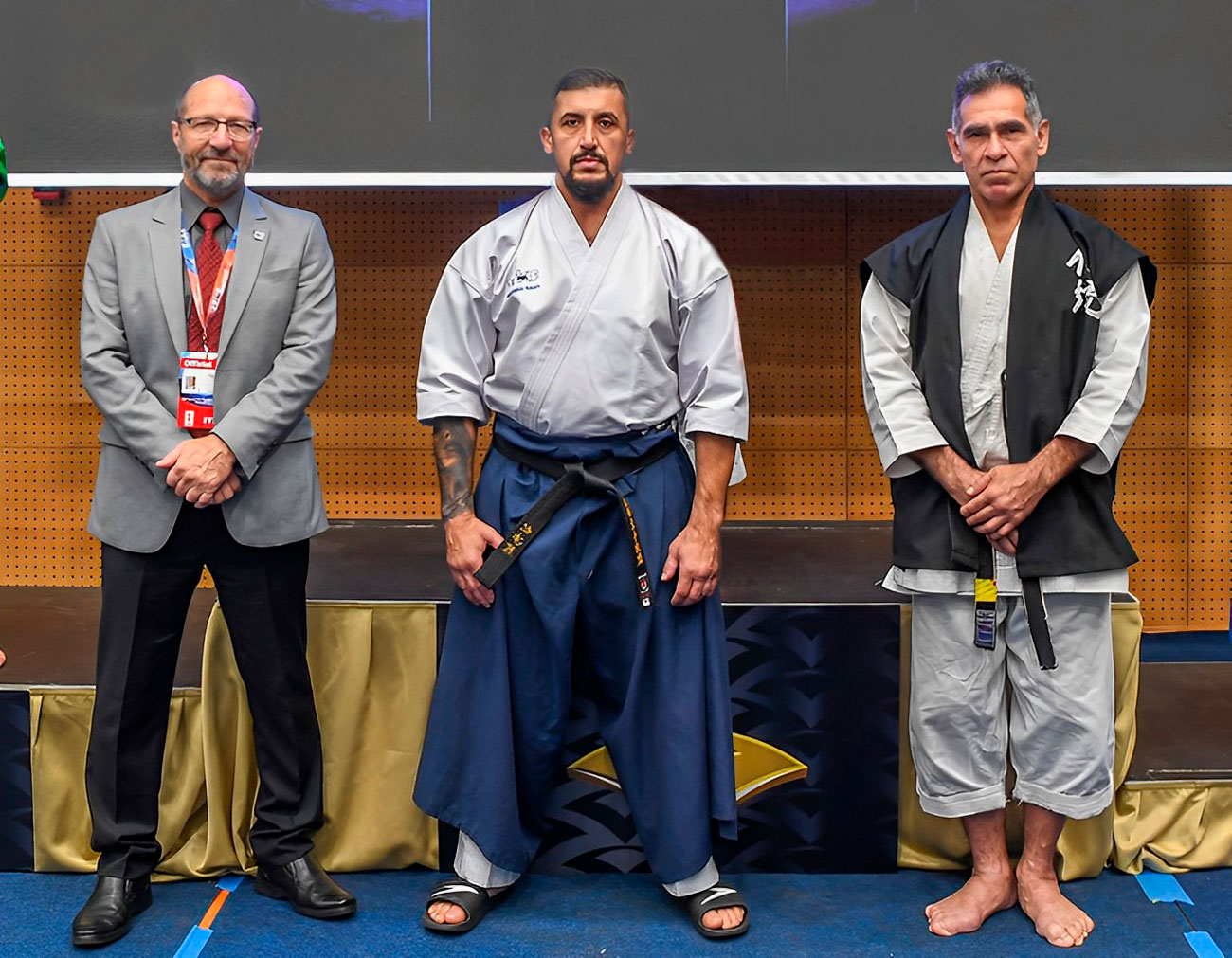
Gilberto Gaertner, Cornel Mussat and Justo Gómez, at the Slovenia 2022 World Championship © Julio Albornoz
In the last world championship, Egypt was the country that took the largest number of participants and has a great differential: the support of the Ministry of Sport. In sub-Saharan Africa there is also a lot of room for growth”, recalled Gaertner, who has plans to travel through these regions next year, giving courses and expanding contacts.
Even fulfilling an intense schedule of international commitments, Gilberto Gaertner always seeks to be close to traditional Brazilian karate. In a recent event of the Federation of Traditional Karate-Do of Paraná (FKTPr) he gave a theoretical and practical course to a legion of young karatekas.
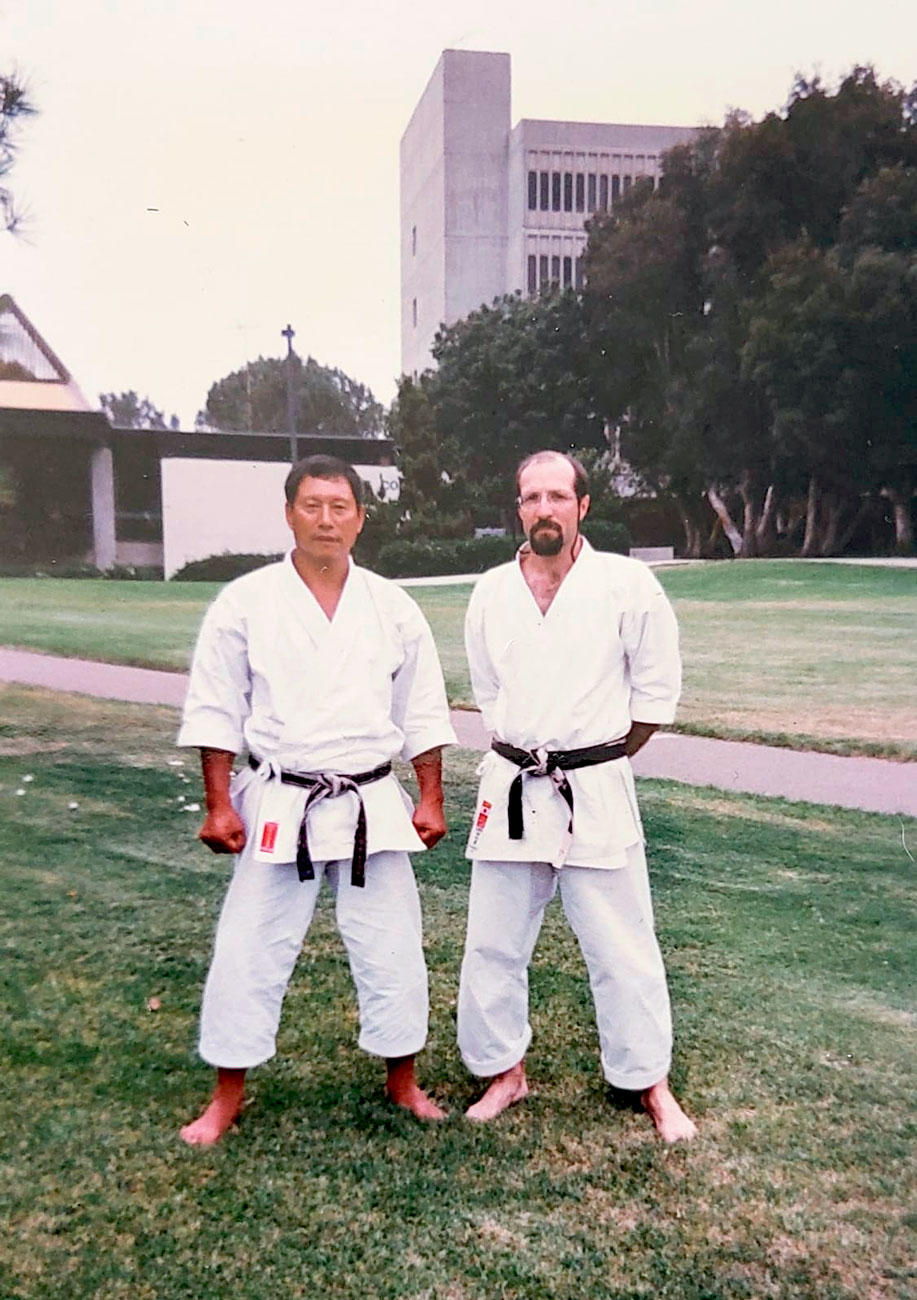
Shihan Hiroshi Shirai and Gilberto Gaertner in the United States in 1996 © Archive
“Due to competitions, practitioners end up restricting the use of techniques. That’s why we worked on a broader repertoire based on the Waza Series, full of possibilities, focused on aspects of self-defense”, explained the director. “This creates another look at training and the applicability of karate techniques.”
“Gilberto Gaertner’s goal is to continue this path, honoring the past while looking to a future, in which traditional karate-do and scientific knowledge intertwine for the benefit of humanity.”
Postdoctoral in Human Movement Sciences, PhD in Child Studies and Master in Neuroscience, among dozens of titles, Gilberto Gaertner boasts an extensive curriculum not only in the academic area, but also in the sports sector. As a psychologist, he was world and Olympic champion with the Brazilian men’s volleyball team and vice-champion of the Copa Libertadores da América from Football with Clube Athletico Paranaense. He currently teaches in the Psychology course at PUC / PR, coordinates a specialization in Sport Psychology and Neurosciences and works in a clinic with somatic psychotherapy, consulting and sports psychology.
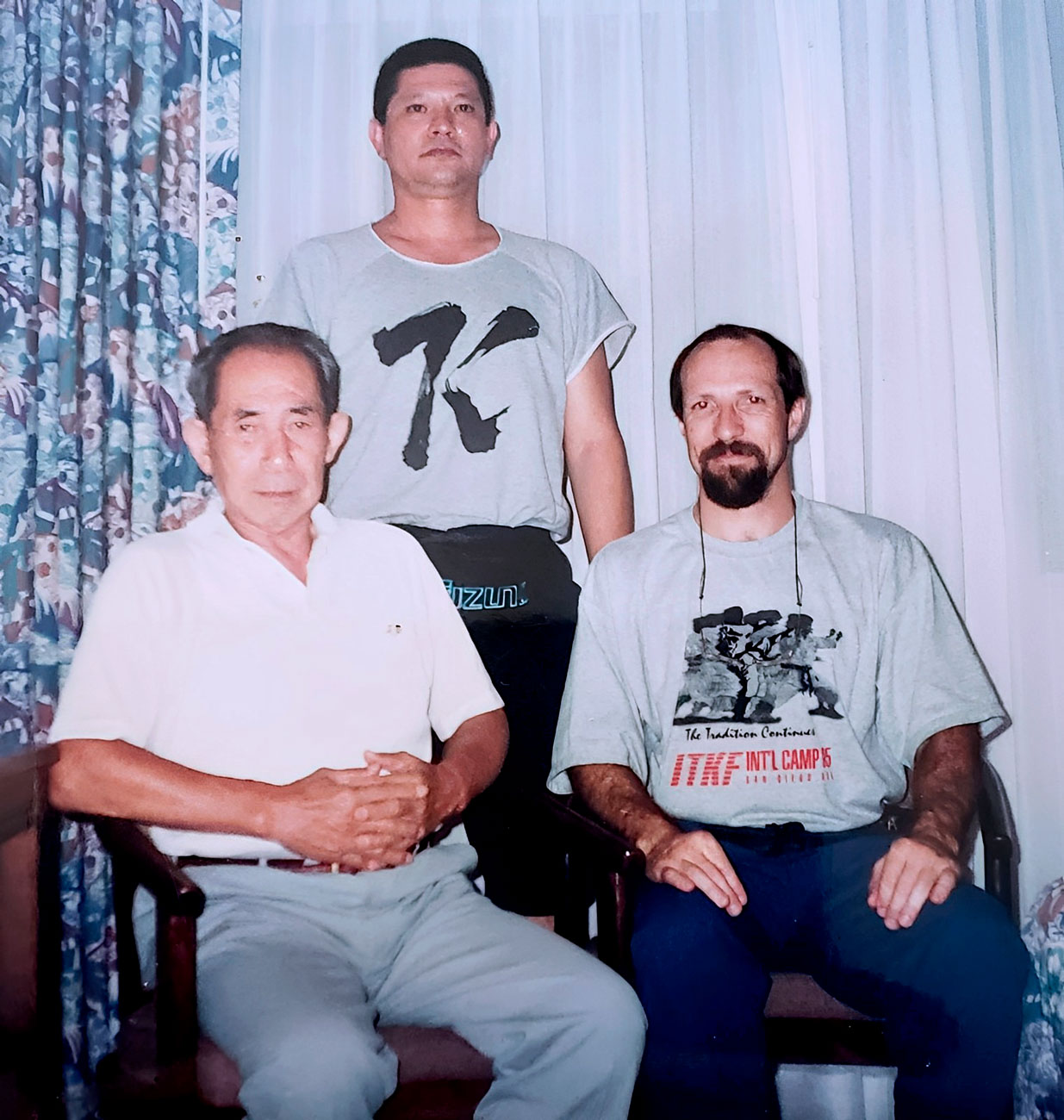
Mestre Kizaki, Kazuo Nagamine and Gilberto Gaertner. Sensei Kizaki was one of the creators of Kittei Kata, along with shihan Nishiyama © Archive
Working in the field of sports psychology, for example, recently Gaertner did the mental preparation of the athlete from the Brazilian rhythmic gymnastics team, Bárbara Domingos. The athlete established herself and wrote her name in the history of the modality with the unprecedented results achieved at the Rhythmic Gymnastics World Championship held in Valencia, Spain, and at the Thiais Grand Prix, in France, where she won an unprecedented gold and bronze. Babi achieved historic results and emerges as a promise for Paris 2024, as she has already secured her participation in the 2024 Olympic Games in France.
His contact with karate occurred in the late 1960s, although she had already practiced judo since the age of 12, at the Kodokan Academy in Curitiba (PR) and decided to attend a class given by sensei Júlio Takuo Arai. “The karate I learned from sensei Arai was fundamental to my life and until today it is my existential axis”, summarized Gaertner when explaining the impact he felt in that first meeting.
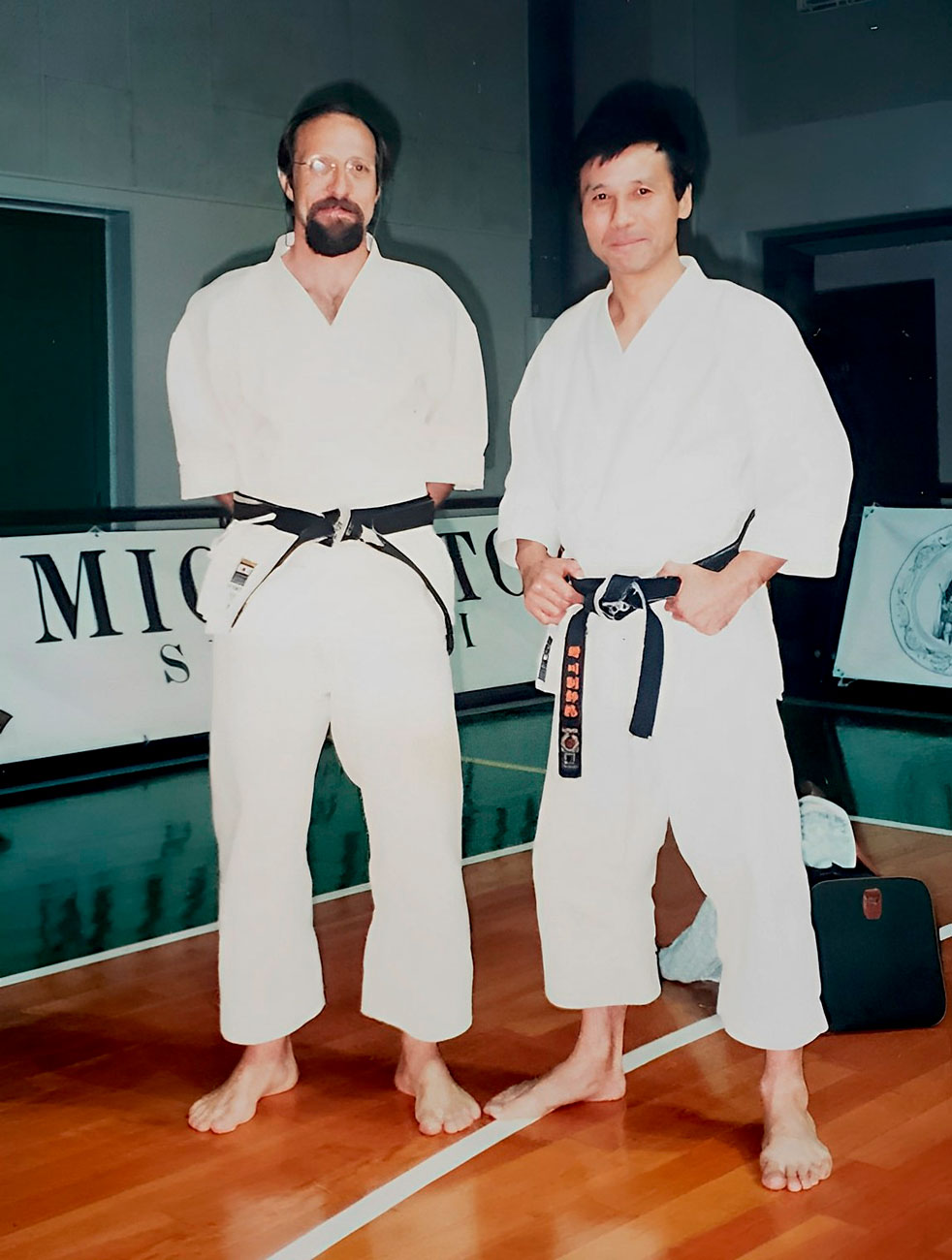
Senseis Gilberto Gaertner and Masao Kawasoe in Italy in the year 2000 © Archive
It was also under the influence of sensei Arai that he began to be interested in the political part of the sport, including the management of the Paraná federation and his affiliation in the 1980s to CBKT, of which he would become president, before reaching the command of ITKF.
Traditional karate-do stands out as a martial art based on history, philosophy, technique and science. Its great master, creator and diffuser was Hidetaka Nishiyama (October 10, 1928, Tokyo – November 7, 2008, Los Angeles).
His studies on human movement based on physiology, kinesiology and biomechanics resulted in a differentiated approach to karate training. It is important to note that his research dates back to the 1960s, when few coaches were using science in sport as a whole.
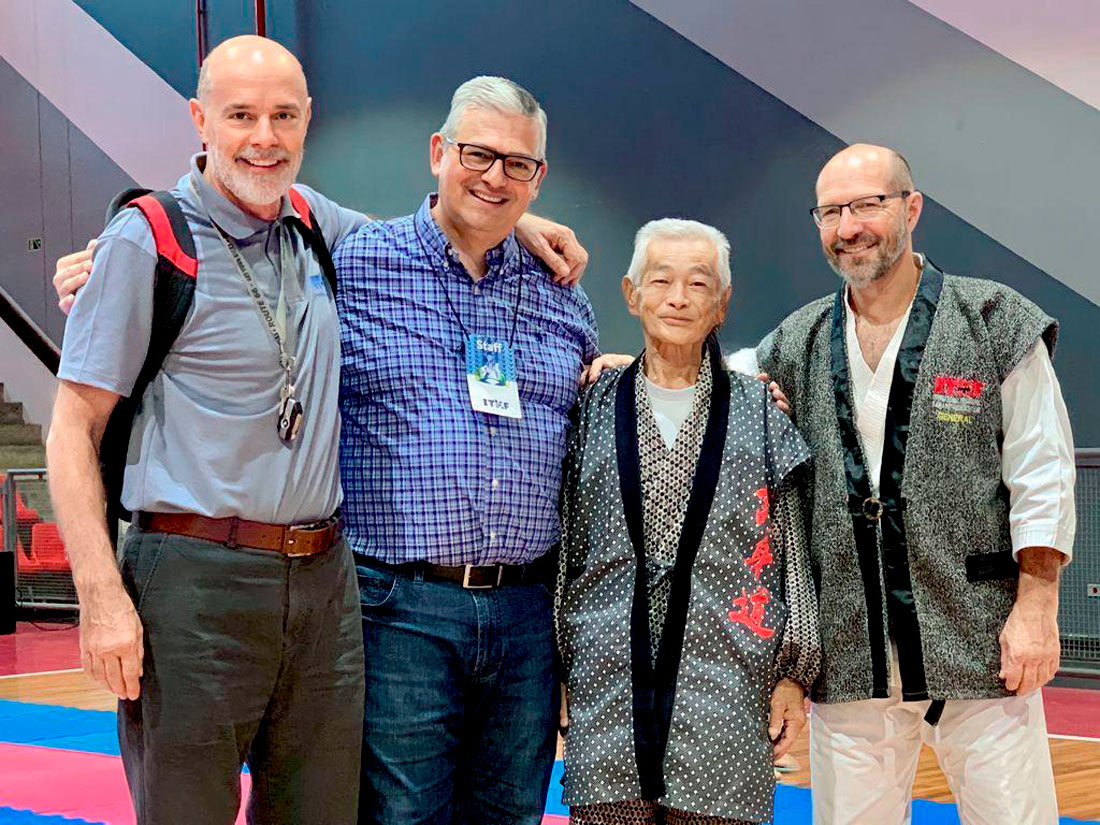
Luiz Alberto Küster, ITKF General Secretary , Antônio Palu Filho, ITKF Legal Director , shihan Takuo Arai and Gilberto Gaertner, ITKF Chairman © Archive
His research not only improved the effectiveness of techniques, but also minimized the risk of injury, ensuring the longevity of practitioners and the territorial expansion of traditional karate-do.
Nishiyama left an invaluable scientific legacy that transcends the world of traditional karate-do and fundamentally contributed to strengthening the image of ITKF.
Gilberto Gaertner’s goal is to continue this path, honoring the past while looking to the future, in which traditional karate-dô and scientific knowledge intertwine for the benefit of humanity.

14 de fevereiro de 2026
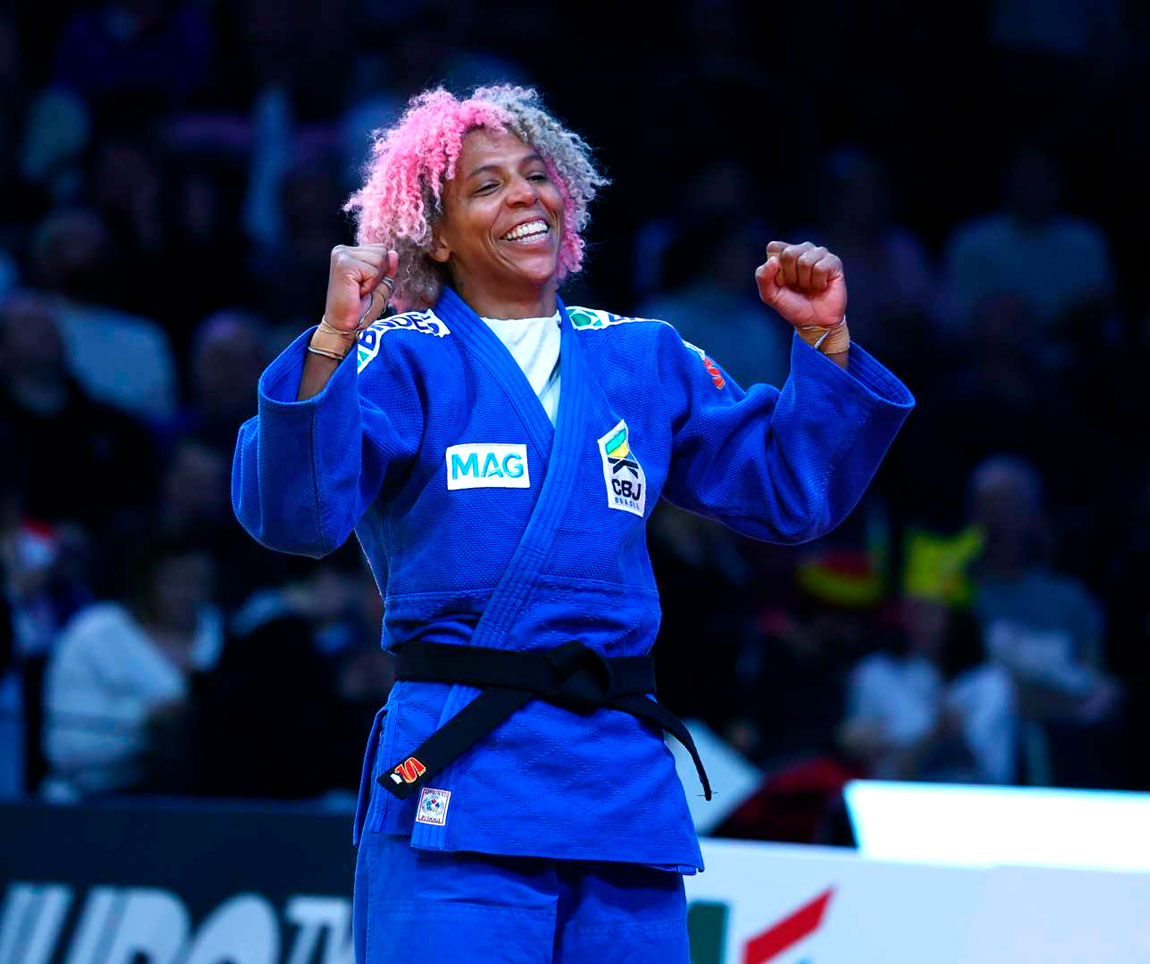
08 de fevereiro de 2026
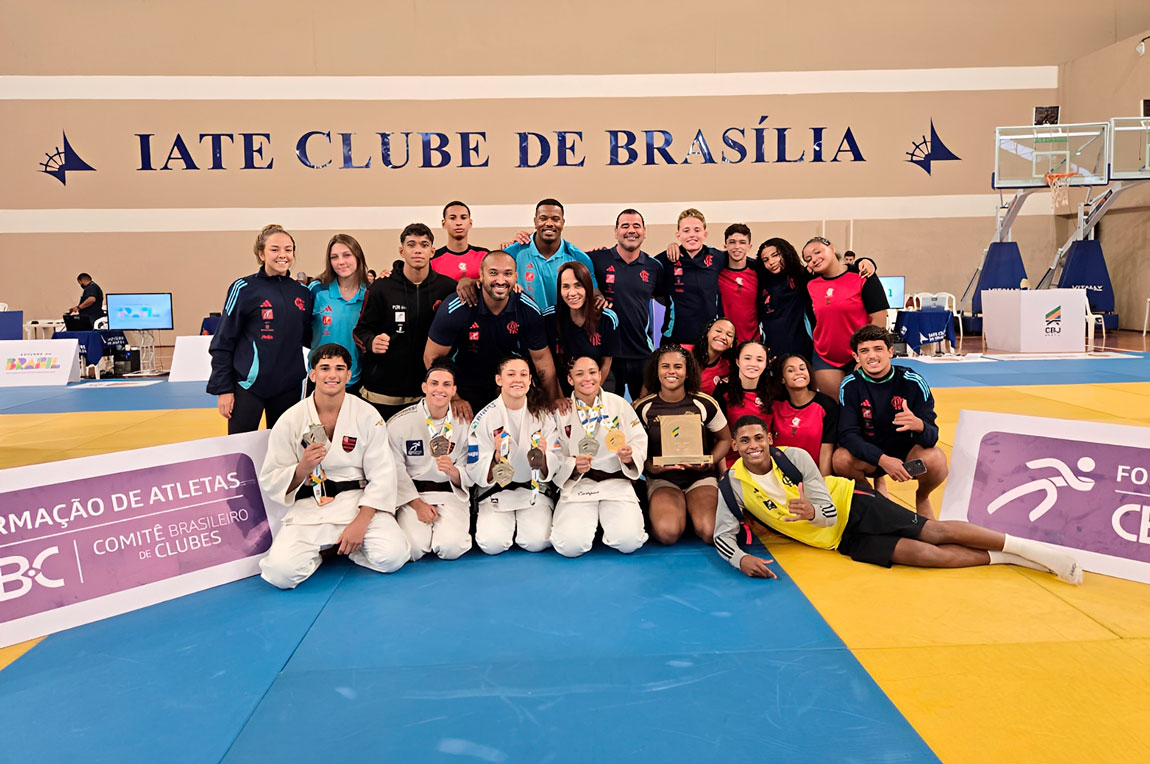
07 de fevereiro de 2026